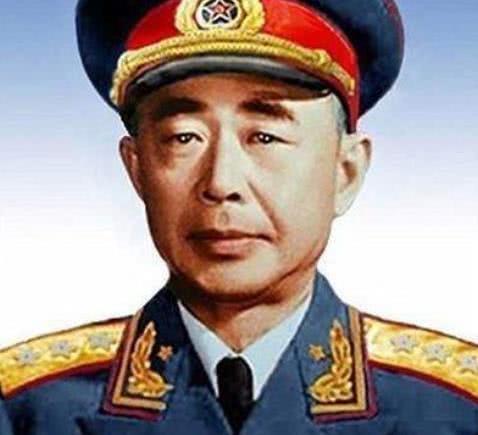Among the rebellious Kuomintang generals, three were awarded the rank of general in New China, namely General Dong Qiwu, General Tao Zhiyue, and General Chen Mingren. ”

Why does the chairman attach so much importance to Dong Qiwu? He has three advantages, the first advantage is that he is not a gangster, Dong Qiwu is a native of Hejin County, Shanxi, in 1919, the 20-year-old Dong Qiwu went to Taiyuan, Shanxi, and was admitted to the student corps founded by Yan Xishan.
During his time at the school, Dong Qiwu was a righteous man, because of a small matter offended the people of the Overseer's Palace, he refused to bow his head and admit his mistake, and was later expelled from the cadet corps, after which he joined the Zhensong Army, the Kuomintang Army, participated in the Northern Expedition, and also served as a deputy regimental commander at that time.
Unfortunately, later when Ninghan merged, Dong Qiwu was ostracized by the Kuomintang concubines, and he was naturally unwilling to join him, and in desperation, he and several officers defected to Fu Zuoyi, who was then the commander of the Tianjin garrison, and from then on he served under Fu Zuoyi for a long time.
In this way, there is a difference between Dong Qiwu and the Generals of the Kuomintang' lineage, at least he is not blindly obedient to Chiang Kai-shek's orders, Dong Qiwu's second advantage is patriotism, and the generals who are patriotic in words are very large, and there are many famous anti-Japanese generals, but there are not many who are truly patriotic.
Dong Qiwu arrived under Fu Zuoyi, and his superhuman generals made him quickly stand out from the crowd, and after "918", Dong Qiwu asked Fu Zuoyi to resist the war, and Fu Zuoyi was touched by his patriotism and supported him in resisting Japan with practical actions.
Dong Qiwu led his troops to participate in the Great Wall War of Resistance, in 1936 participated in the Suiyuan War of Resistance, after which he personally led 2 regiments of troops deep into the hinterland of the Japanese army, conquered the Shangdu City occupied by the Japanese puppet army, and then participated in the Battle of Xinkou and the Battle of Taiyuan, and he almost participated in the large-scale anti-japanese war that took place in Shanxi.
It is worth saying that during the War of Resistance Against Japanese Aggression, he also established friendly relations with the Eighth Route Army, and the two sides had the experience of cooperating in resisting Japan; he summed up his acquaintance with Elder He and asked Elder He for advice on the essence of guerrilla warfare. ”
Dong Qiwu's patriotic feelings can be seen from this: As long as it can be conducive to the War of Resistance against The Devils, Dong Qiwu is willing to do it, and he has such ideas and feelings; in the War of Liberation, for the sake of national peace and the people from the suffering of war, Dong Qiwu chose to revolt.
The third advantage is modesty, after the uprising, Dong Qiwu's unit was reorganized into the 23rd Corps, Dong Qiwu served as the commander of the corps, the War to Resist US Aggression and Aid Korea broke out, Dong Qiwu led the 23rd Corps to participate in the war, undertook military tasks such as building airports, and repaired three airports in 3 months.
In 1952, Dong Qiwu led the 23rd Corps back to China, and the unit was reorganized into the 69th Army, at that time Dong Qiwu's rank was the corps level, which should serve as the deputy of the Grand Military Region, but the chairman considered letting him continue to take charge of the army and serve as the commander of the 69th Army, Dong Qiwu was very touched by this.
Later, when Dong Qiwu learned that he would be awarded the rank of general, he took the initiative to write to the chairman, saying that he was a lieutenant general when he was in the Kuomintang, and this time he was satisfied with the title of lieutenant general, and the chairman replied: "Dong Qiwu must be awarded the rank of general", and at the request of the chairman, Dong Qiwu was awarded the rank of general.